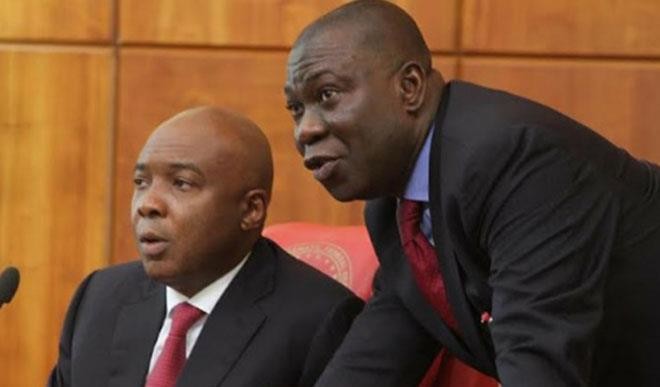CCT trial: Impeccability of govt’s withdrawal of Saraki, Ekweremadu’s case
Federal Government’s sudden withdrawal of criminal charges against the Senate President, Bukola Saraki, his deputy, Ike Ekweremadu and other principal officers of the Senate over alleged forgery of the Senate Standing Orders 2015 as amended without the authority of the 7th Senate of the Federal republic of Nigeria, has two inferences. The offences centred on […]


Federal Government’s sudden withdrawal of criminal charges against the Senate President, Bukola Saraki, his deputy, Ike Ekweremadu and other principal officers of the Senate over alleged forgery of the Senate Standing Orders 2015 as amended without the authority of the 7th Senate of the Federal republic of Nigeria, has two inferences.
The offences centred on criminal conspiracy, giving false information with the intention to mislead the public and forgery punishable under section 366 of the Penal Code Act (Northern States) Federal Provisions Act, 1960, Cap 345, Laws of the Federation 1990 (as amended), if proved beyond reasonable doubt could relocate the accused to prisoners right from the hallowed chamber in the Senate.
So far, all the accused persons had been arraigned and docked right in the witness box at Code of Conduct Tribunal (CCT) regardless of their high positions in the country. By hierarchy, Saraki is the third citizen of the country having been elected the president of the senate through the controversial election. Similar to ordinary citizens facing prosecution, they all pleaded ‘not guilty’ to the charges and were granted bails.
Incidentally, Section 174(1)a-c of the 1999 Constitution empowers the Attorney General of the Federation (AGF) to commence and terminate prosecution in respect of federal offences. The unfettered discretion covers him that he does not even have to adduce reasons for whatever actions he elects. Probably, he has evaluated the available evidences against the accused persons vis-à-vis the seeming unpreparedness of senators and National Assembly staff to testify before the court against their principal officers, and came to a conclusion that conviction may not be actualized knowing that under criminal law, the onus is placed on the prosecution.
On a second supposition, the AGF may have considered the state of affairs in the country and concluded that such political issues which dwelt largely on the political tussle in the Senate over leadership between the All Progressive Congress (APC) and People’ Democratic Party (PDP) had been overtaken by events on account of the economic recession which is demanding at the moment.
However, the accused having been dragged to court but subsequently withdrawn can sue for malicious prosecution if they are confident of clean hands knowing that withdrawal of a suit does not amount to res judicata since the court neither discharged nor acquitted them. Hence, the AGF has unencumbered freedom of choice to reinstate the matter and re-arraign them before the court on the same charges if so pleases. Splendidly, Saraki and the other accused had accepted the action of the AGF in good fate, hence case closed.
With the gesture, the harmony could boost the relationship between the executive and legislature, as well as resolve the endless superiority battle between the two leading political parties in the country which may ultimately lead to a unity of purpose. The political tension in the country is persistently, similar to the election era, though this time on opposite directions; APC moved to the defense, while PDP doggedly sits up as attackers. By now, all political parties ought to be operating in the background; in some instances with a central government of national unity so as to focus on governance and less politicking such that the president can concentrate and be free to make use of some technocrats from other parties for national growth.
Carl Umegboro, Abuja
